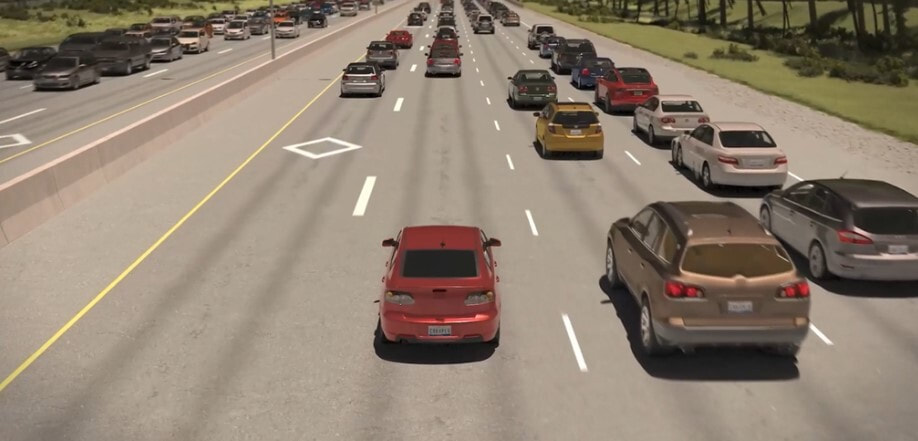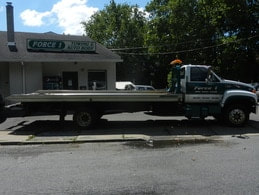|
|
|
Governor Whitmer Signs Bipartisan Bills to Fill Teacher Shortage, Create High-Occupancy Vehicle Lanes in Michigan
LANSING, Mich.—Today, Governor Gretchen Whitmer signed bipartisan legislation to allow retired teachers and public school employees to return to work while continuing to receive the retirement benefits that they earned, helping fill the teacher shortage in Michigan.
“Michigan teachers and public school employees step up every day to help students succeed in communities across Michigan,” said Governor Whitmer. “Since I took office, we have made historic investments to open up the teacher pipeline and help more aspiring Michigan educators enter their dream career. I am proud to sign legislation making it easier for retired teachers and public school employees to get back in the classroom and continue making a difference for our kids while earning the pensions they deserve.”
House Bill 4752, sponsored by state Representative Matthew Koleszar, helps public school retirees return to work while continuing to receive retirement and health care.
“The signing of this legislation into law is fantastic news for all of Michigan’s public school retirees, families, and ultimately our students,” said state Representative Matt Koleszar (D-Plymouth). “Now, those with the most experience can re-enter our schools in a variety of capacities to help address staffing shortages. This is a big win for everyone.”
Investments to Support Teachers
In the most recent budget, Governor Whitmer built on historic investments in students, educators, and schools. The budget includes:
$370 million to support teachers, including continued support for the MI Future Educator Program (which provides a tuition free path for college students to become certified teachers) and funds to retain and develop existing teachers through mentorship programs.
$76 million to expand ‘grow your own’ programs, helping districts train staff for classroom roles.
$50 million to strengthen teacher mentoring programs.
$30 million to recruit, train, and retain early educators, additional $15 million specifically for rural areas.
Additionally, the governor signed legislation allowing the Michigan Department of Transportation (MDOT) to designate newly built highway lanes constructed using federal funds as high-occupancy vehicle (HOV) lanes, encouraging carpooling and providing MDOT with a useful tool to ease traffic on highways.
“These bills represent a major step forward for mobility in Michigan and efforts to decrease emissions by encouraging people to share rides,” said MDOT Director Bradley C. Wieferich. “I want to thank the bill sponsors for their diligence and Gov. Whitmer for recognizing what this will mean to commuters and other travelers on one of the state’s busiest corridors.”
House Bill 4352, sponsored by state Representative Nate Shannon, amends the Michigan Vehicle Code to exempt motorcycles and other vehicles as determined by MDOT from HOV lane restrictions.
“My bill will transform mobility in Michigan by establishing high-occupancy vehicle lanes, and I am honored to see it become law,” said state Representative Nate Shannon (D-Sterling Heights), chair of the House Transportation, Mobility and Infrastructure Committee. “With these bills, our state not only furthers its efforts toward more efficient mobility and lower carbon emissions, but it also fully leverages federal infrastructure funding for Michigan. I am proud of Michigan’s infrastructure progress as we adapt to a greener future, while continuing to repair and rebuild roads and bridges at historic rates.”
House Bill 4353, sponsored by state Representative Sharon MacDonell, allows MDOT to designate HOV lanes on newly constructed highway lanes built using federal funding.
“These bills provide the authorization for designating the HOV lanes that have already been built for that purpose in Troy,” said state Representative Sharon MacDonell (D-Troy). “I’m proud that the HOV lanes will be an effective tool for reducing traffic and pollution on I-75, where it runs through the heart of my district.”
“Michigan teachers and public school employees step up every day to help students succeed in communities across Michigan,” said Governor Whitmer. “Since I took office, we have made historic investments to open up the teacher pipeline and help more aspiring Michigan educators enter their dream career. I am proud to sign legislation making it easier for retired teachers and public school employees to get back in the classroom and continue making a difference for our kids while earning the pensions they deserve.”
House Bill 4752, sponsored by state Representative Matthew Koleszar, helps public school retirees return to work while continuing to receive retirement and health care.
“The signing of this legislation into law is fantastic news for all of Michigan’s public school retirees, families, and ultimately our students,” said state Representative Matt Koleszar (D-Plymouth). “Now, those with the most experience can re-enter our schools in a variety of capacities to help address staffing shortages. This is a big win for everyone.”
Investments to Support Teachers
In the most recent budget, Governor Whitmer built on historic investments in students, educators, and schools. The budget includes:
$370 million to support teachers, including continued support for the MI Future Educator Program (which provides a tuition free path for college students to become certified teachers) and funds to retain and develop existing teachers through mentorship programs.
$76 million to expand ‘grow your own’ programs, helping districts train staff for classroom roles.
$50 million to strengthen teacher mentoring programs.
$30 million to recruit, train, and retain early educators, additional $15 million specifically for rural areas.
Additionally, the governor signed legislation allowing the Michigan Department of Transportation (MDOT) to designate newly built highway lanes constructed using federal funds as high-occupancy vehicle (HOV) lanes, encouraging carpooling and providing MDOT with a useful tool to ease traffic on highways.
“These bills represent a major step forward for mobility in Michigan and efforts to decrease emissions by encouraging people to share rides,” said MDOT Director Bradley C. Wieferich. “I want to thank the bill sponsors for their diligence and Gov. Whitmer for recognizing what this will mean to commuters and other travelers on one of the state’s busiest corridors.”
House Bill 4352, sponsored by state Representative Nate Shannon, amends the Michigan Vehicle Code to exempt motorcycles and other vehicles as determined by MDOT from HOV lane restrictions.
“My bill will transform mobility in Michigan by establishing high-occupancy vehicle lanes, and I am honored to see it become law,” said state Representative Nate Shannon (D-Sterling Heights), chair of the House Transportation, Mobility and Infrastructure Committee. “With these bills, our state not only furthers its efforts toward more efficient mobility and lower carbon emissions, but it also fully leverages federal infrastructure funding for Michigan. I am proud of Michigan’s infrastructure progress as we adapt to a greener future, while continuing to repair and rebuild roads and bridges at historic rates.”
House Bill 4353, sponsored by state Representative Sharon MacDonell, allows MDOT to designate HOV lanes on newly constructed highway lanes built using federal funding.
“These bills provide the authorization for designating the HOV lanes that have already been built for that purpose in Troy,” said state Representative Sharon MacDonell (D-Troy). “I’m proud that the HOV lanes will be an effective tool for reducing traffic and pollution on I-75, where it runs through the heart of my district.”
Rebuilding Michigan’s Roads and Bridges
By the end of this construction season, Michigan will have fixed nearly 20,000 lane miles of state-owned roads and 1,400 bridges. Governor Whitmer is focused on rebuilding our roads and bridges with the right mix and materials, so they stay fixed, supporting 89,000 good-paying construction jobs along the way.
These and future repairs are made possible by the Rebuilding Michigan plan, a five-year, $3.5 billion investment in our highways and bridges, and the bipartisan Building Michigan Together Plan, the largest one-time investment in Michigan's infrastructure in state history. These strategic investments in Michigan's infrastructure ensure that future Michiganders will have safer roads and bridges to run errands, travel, and strengthen the economy.
Learn more about the Whitmer-Gilchrist Administration’s historic infrastructure investments by clicking on the following link: Infrastructure Accomplishments.
By the end of this construction season, Michigan will have fixed nearly 20,000 lane miles of state-owned roads and 1,400 bridges. Governor Whitmer is focused on rebuilding our roads and bridges with the right mix and materials, so they stay fixed, supporting 89,000 good-paying construction jobs along the way.
These and future repairs are made possible by the Rebuilding Michigan plan, a five-year, $3.5 billion investment in our highways and bridges, and the bipartisan Building Michigan Together Plan, the largest one-time investment in Michigan's infrastructure in state history. These strategic investments in Michigan's infrastructure ensure that future Michiganders will have safer roads and bridges to run errands, travel, and strengthen the economy.
Learn more about the Whitmer-Gilchrist Administration’s historic infrastructure investments by clicking on the following link: Infrastructure Accomplishments.
Ready for reliable and friendly service in a towing company? Combined with competitive rates? Call Force 1 Towing and Auto Body in Catasauqua at 610-266-6721



